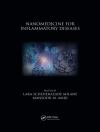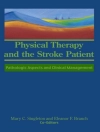The decay product of the medical isotope molybdenum-99 (Mo-99), technetium-99m (Tc-99m), and associated medical isotopes iodine-131 (I-131) and xenon-133 (Xe-133) are used worldwide for medical diagnostic imaging or therapy. The United States consumes about half of the world’s supply of Mo-99, but there has been no domestic (i.e., U.S.-based) production of this isotope since the late 1980s. The United States imports Mo-99 for domestic use from Australia, Canada, Europe, and South Africa. Mo-99 and Tc-99m cannot be stockpiled for use because of their short half-lives. Consequently, they must be routinely produced and delivered to medical imaging centers. Almost all Mo-99 for medical use is produced by irradiating highly enriched uranium (HEU) targets in research reactors, several of which are over 50 years old and are approaching the end of their operating lives. Unanticipated and extended shutdowns of some of these old reactors have resulted in severe Mo-99 supply shortages in the United States and other countries. Some of these shortages have disrupted the delivery of medical care. Molybdenum-99 for Medical Imaging examines the production and utilization of Mo-99 and associated medical isotopes, and provides recommendations for medical use.
Committee on State of Molybdenum-99 Production and Utilization and Progress Toward Eliminating Use of Highly Enriched Uranium & Division on Earth and Life Studies
Molybdenum-99 for Medical Imaging [PDF ebook]
Molybdenum-99 for Medical Imaging [PDF ebook]
Beli ebook ini dan dapatkan 1 lagi GRATIS!
Bahasa Inggris ● Format PDF ● Halaman 263 ● ISBN 9780309445320 ● Penerbit National Academies Press ● Diterbitkan 2016 ● Diunduh 3 kali ● Mata uang EUR ● ID 7145184 ● Perlindungan salinan Adobe DRM
Membutuhkan pembaca ebook yang mampu DRM












